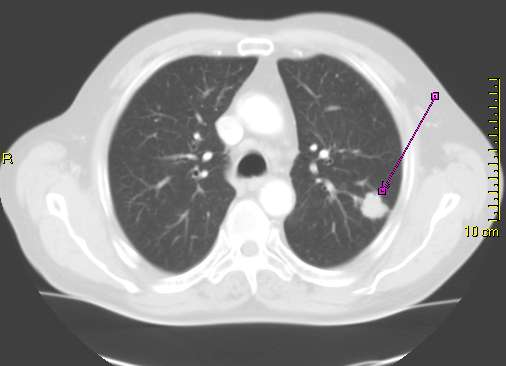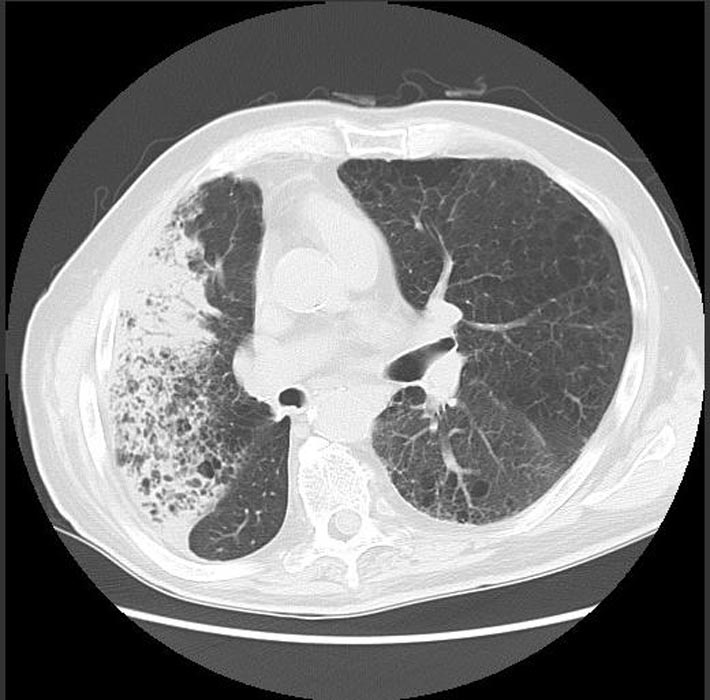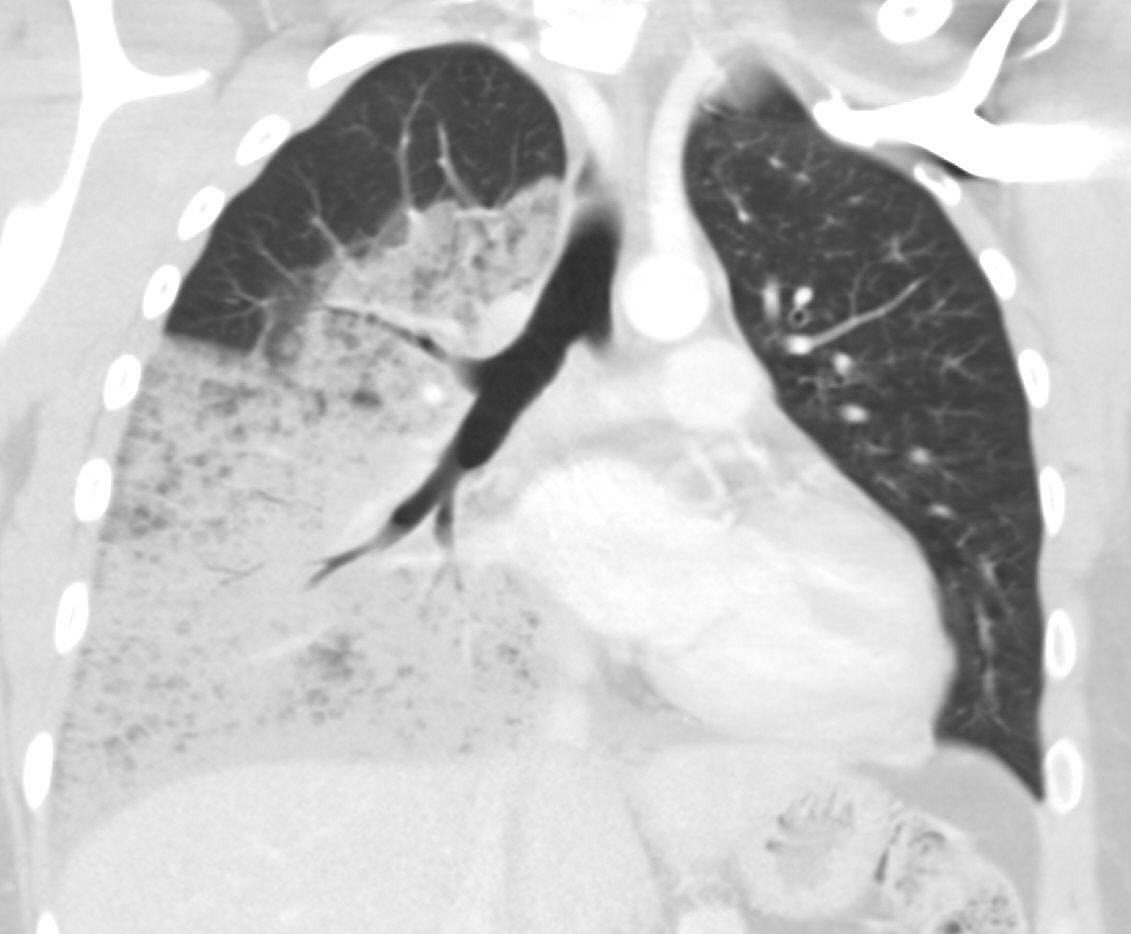Lung cancer CT: Difference between revisions
No edit summary |
No edit summary |
||
| Line 5: | Line 5: | ||
==Overview== | ==Overview== | ||
CT scans diagnose lung cancer by providing anatomical detail to locate the [[tumor]], demonstrating proximity to nearby structures, and deciphering whether [[lymph nodes]] are enlarged in the [[mediastinum]]. | |||
==CT Scan== | ==CT Scan== | ||
The benefits of CT Scans in lung cancer patients are the following<ref name="Silvestri">Gerard A. Silvestri, Lynn T. Tanoue, Mitchell L. Margolis, John Barker, Frank Detterbeck.11/30/11.The Noninvasive Staging of Non Small-cell Lung Cancer. Chestpubs. http://chestjournal.chestpubs.org/content/123/1_suppl/147S.full/</ref> | |||
*Provides anatomical detail to locate the [[tumor]] | |||
*Demonstrates proximity to nearby structures | |||
*Deciphers whether [[lymph nodes]] are enlarged in the [[mediastinum]] | |||
Unfortunately, research has shown that there are a number of false positives associated with CT scanning because a CT scan on its own can not determine [[malignancy]]. A recent study showed that approximately 40% of lung cancers that are considered malignant by CT scanning turn out to actually be [[benign]] after further testing. A positive result for a tumor using a CT scan is typically followed up with a [[biopsy]] for confirmation. | Unfortunately, research has shown that there are a number of false positives associated with CT scanning because a CT scan on its own can not determine [[malignancy]]. A recent study showed that approximately 40% of lung cancers that are considered malignant by CT scanning turn out to actually be [[benign]] after further testing. A positive result for a tumor using a CT scan is typically followed up with a [[biopsy]] for confirmation. | ||
Revision as of 18:09, 22 July 2015
|
Lung cancer Microchapters |
|
Diagnosis |
|---|
|
Treatment |
|
Case Studies |
|
Lung cancer CT On the Web |
|
American Roentgen Ray Society Images of Lung cancer CT |
Editor-In-Chief: C. Michael Gibson, M.S., M.D. [1]; Associate Editor(s)-In-Chief: Kim-Son H. Nguyen, M.D., M.P.A., Beth Israel Deaconess Medical Center, Harvard Medical School, Boston MA, Cafer Zorkun, M.D., Ph.D. [2]
Overview
CT scans diagnose lung cancer by providing anatomical detail to locate the tumor, demonstrating proximity to nearby structures, and deciphering whether lymph nodes are enlarged in the mediastinum.
CT Scan
The benefits of CT Scans in lung cancer patients are the following[1]
- Provides anatomical detail to locate the tumor
- Demonstrates proximity to nearby structures
- Deciphers whether lymph nodes are enlarged in the mediastinum
Unfortunately, research has shown that there are a number of false positives associated with CT scanning because a CT scan on its own can not determine malignancy. A recent study showed that approximately 40% of lung cancers that are considered malignant by CT scanning turn out to actually be benign after further testing. A positive result for a tumor using a CT scan is typically followed up with a biopsy for confirmation. Images courtesy of RadsWiki
 |
 |
 |
 |
References
- ↑ Gerard A. Silvestri, Lynn T. Tanoue, Mitchell L. Margolis, John Barker, Frank Detterbeck.11/30/11.The Noninvasive Staging of Non Small-cell Lung Cancer. Chestpubs. http://chestjournal.chestpubs.org/content/123/1_suppl/147S.full/